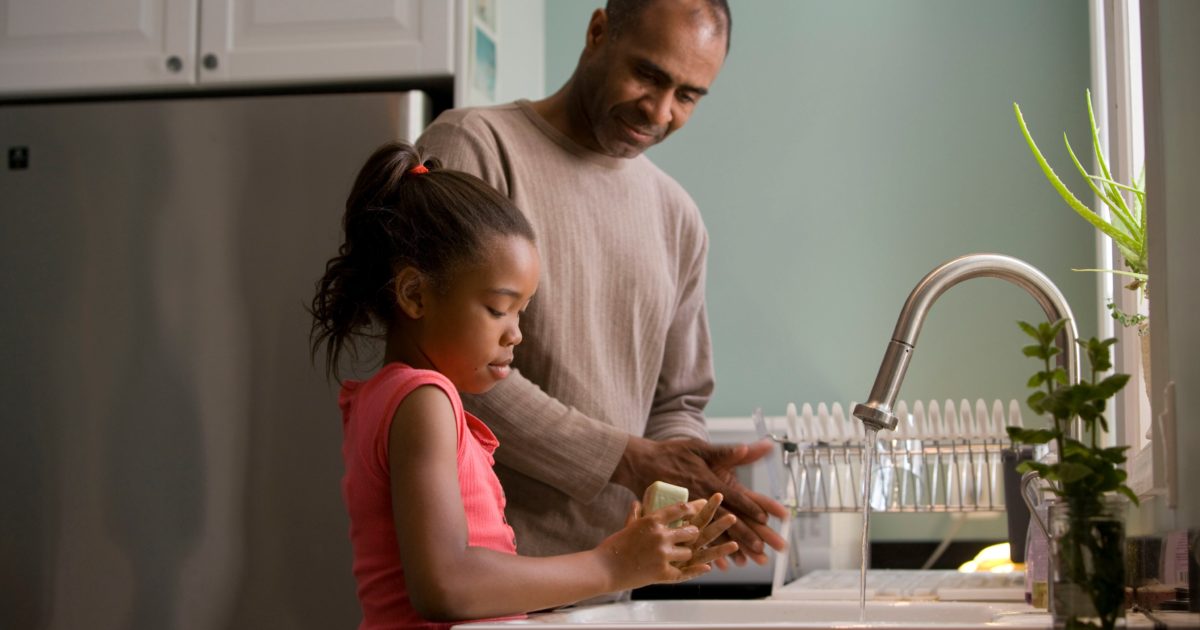“Now our children will find out how dumb we are. It’s not right. Really.”
These words from a mom lamenting in a selfie video the challenges of distance learning thrust upon many American families amid the COVID-19 pandemic, featured on an April 29 episode of The Ellen Show’s “#Momsplaining with Kristin Bell.”
And while Donna Baer—parenting coach and author of “Strong Happy Family: Unexpected Advice from an Ivy League Mother of Ten”—would say that the distance learning taken on by many parents during this time with support of their respective school systems is not actually homeschooling, this mom’s concern in the video clip still begs the question for home-schooling parents: Are you educated enough to teach your kids K-12?
Currently, there are only a handful of states that require parents to meet some sort of educational qualification to homeschool. According to the Coalition for Responsible Home Education, 11 states require some qualification, usually a high school diploma or GED. Washington requires college credits or taking a course on home-based study.
“Every homeschool mom, especially those with kids attending junior high or high school, realizes she doesn’t understand everything that their child will need to understand,” Baer said. “You have to have humility as you go in and realize ‘I don’t know all this,’ but also have confidence in knowing this is learnable [material].”
Chandler Smith — Donna’s eldest of 10 children — said, in fact, “If you feel like you know everything you will be a terrible teacher to your children.” Your job as a homeschool educator is to be curious and show that curiosity to your kids.
“If you feel like you know everything you will be a terrible teacher to your children.”
— Chandler Smith
“Model for them what it looks like to get excited about a new subject or idea and go down a rabbit hole of exploration. Is your 5-year-old interested in volcanoes? Watch all the volcano documentaries, read all the books on volcanoes, find experts in your area who know what they’re talking about, take out the baking soda and vinegar and make a mess on the kitchen table. Learn together. You do not need to be the expert, just the fellow traveler,” Smith said.
To Baer, the key to successful homeschooling is to find a curriculum that is designed for the child to teach himself or herself. (Find a list here.) Baer said most school textbooks are not written this way, rather they are written as a tool for classroom teachers.
“They’re not written to be as engaging books for a child to learn a topic,” she said.
Baer explained books designed to help children learn will often be written by one author in a narrative voice. “They’ll sound like a story unfolding, as opposed to a bunch of data thrown into paragraphs.”
Baer said good homeschooling websites can steer people toward these types of books.
Sometimes your child will get a topic before you do, Baer said, explaining that you just need to treat it as a learning adventure. When you learn, say, physics, alongside your child, it really puts the concept of lifelong learning into visible practice for them.
“It gives your child the picture of humble lifelong learning, and that’s a lesson that will take your child through his or her life,” she said.
The first time you fill in your own educational gaps alongside your child might be very time consuming, Baer said, but it will then be easier with subsequent children.
“I’ve filled in so many of my gaps,” she said of her “we’re-in-this-together” style.
There are a number of resources available to homeschooling families as well. If you’re just starting out, Baer said to seek out a co-op. She said she benefited mostly from having veteran home-schoolers to ask questions of.
“They are an invaluable resource and there are all kinds of different groups,” she explained.
Smith said that while she’s the “overseer” of her children’s education, she’s not the only teacher.
“It’s my job to find the most inspiring, dynamic teachers in our area (or the world— thank you YouTube!) and learn with my kids from them. I have learned so much from other people as I home school my kids, and that is the gift and beauty of it all. We are all cultivating a lifelong love of learning together,” she said.
Smith has found co-ops helpful for structure and community. Her children spend one day a week learning and doing hands-on science experiments, art, and memory work with friends in these groups.
“Having a tribe to walk this road with is invaluable,” she said.
Smith also noted the value of home schooling in the age of the Internet.
“There is absolutely no reason you can’t learn anything at this point in history. Create time and space to pursue the things you’re interested in or have gaps in. Brush up on math with Kahn Academy, learn how to play piano with the app Simply Piano, listen to lectures on YouTube about anything in history or science or theology,” she said.
Smith recalled reading somewhere that homeschool parents “are the last ‘leisure class’ in our society.” It’s not that they don’t work—there’s so much work involved, she noted—but these parents are “free to learn for the sake of learning.”
“I would not be learning Latin, and memorizing classic poetry and scripture, and re-learning ancient history and Newton’s laws if I wasn’t managing my kids’ education. It’s an incredible privilege to free to learn with the people I love most,” she said.
This article is the first in a short series on home schooling based on interviews with Donna Baer, a 28-year veteran of home schooling and mom of 10, and her eldest daughter Chandler (Baer) Smith, who is now home schooling three of her five children. Read our other resources on homeschooling, “Five myths about home schooling and being homeschooled” and “Seven challenges in home schooling your kids … and how to overcome them.”

